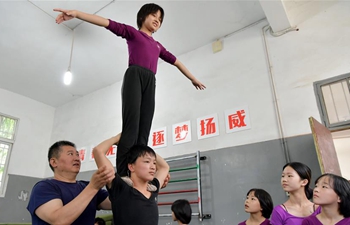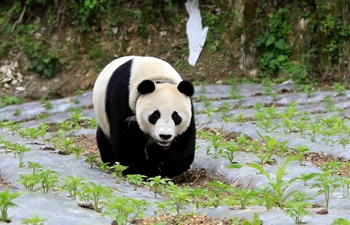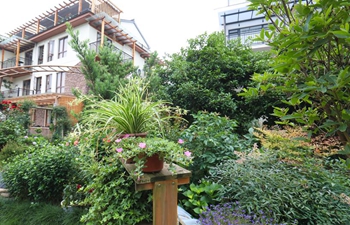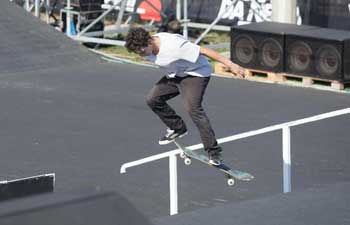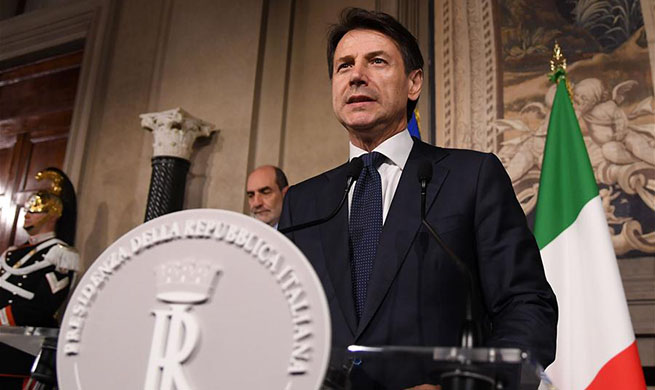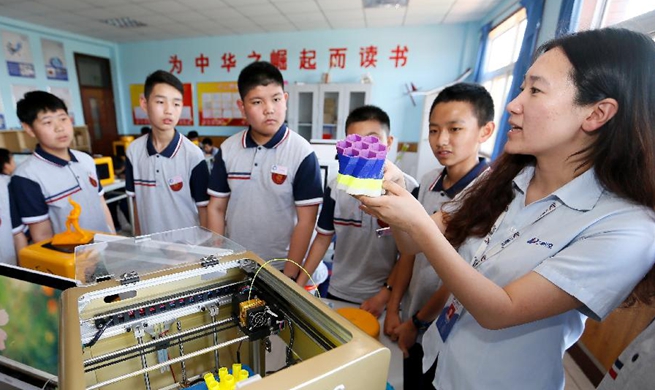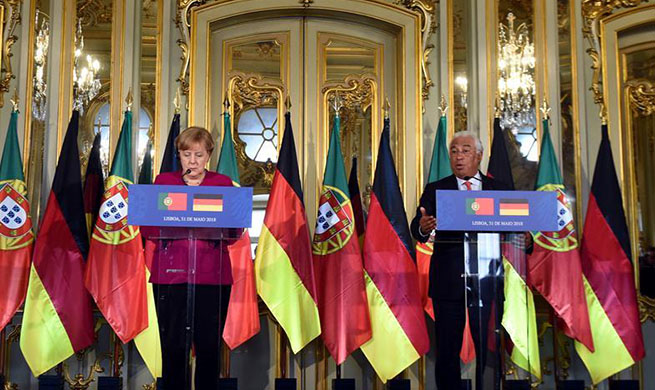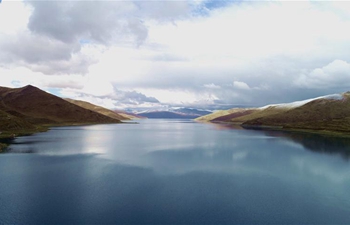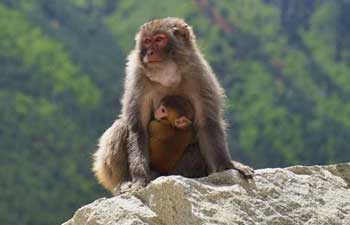BEIJING, June 1 (Xinhua) -- With a theme of the "intersection" of contemporary art and culture in a globalized context, Arthur M. Sackler Museum at China's elite Peking University (PKU) celebrated 25 years of promoting international exchange earlier this week.
To celebrate the occasion, an exhibition of selected works by 14 renowned Chinese and foreign artists, under the Dame Jillian Sackler International Artists Exhibition Programme, was launched at the museum Sunday.
"The significance of these exhibits has gone further than art. They remind us that we are living in the same world, and they inspire us to reflect on how to interpret art under different cultural backgrounds," said Wang Bo, vice president of Peking University.
The exhibition concentrates on how art and culture impacts our complicated era, said Jillian Sackler, honorary director of the museum.
Awarded artists and scholars also debated the role that artistic and cultural exchange plays in making the world a better place at a symposium.
A TEACHING MUSEUM
In 1976, American psychiatrist Arthur M. Sackler visited China as consultant on the development of the country's public health. Sackler, who was also an art collector, admired China's traditional art and suggested that a teaching museum akin to the Sackler Museum at Harvard University should be gifted to Peking University, according to Jillian Sackler, his wife.
Mr. Sackler died in 1987, shortly after the projected museum was given go-ahead for construction. His widow, nevertheless, went ahead with the project.
On May 27, 1993, the Arthur M. Sackler Museum of Art and Archaeology opened near the West Gate of Peking University, becoming the first teaching museum in China. With a beautiful location, the museum boasts the architectural style of Ming Dynasty (1368-1644), in keeping with other architecture in that traditional, serene corner of the PKU campus.
"My husband and I envisioned that contributing a teaching museum for China from the U.S. would create good relations and better understanding between our two very different cultures, and lead to a more peaceful world," said Mrs. Sackler, president of Dame Jillian & Dr Arthur M Sackler Foundation for Arts, Sciences and Humanities, at the opening ceremony of the exhibition.
The museum seeks to preserve China's cultural heritage and to prepare professionals in museology, she said.
"In 25 years the world has changed, and maybe China has transformed more than any other country," she pointed out, expressing contentment that the Sackler Museum at PKU has led the way to a proliferation of more and more museums being built nationwide.
There are nearly 300 museums on university campuses in China, among which the Sackler Museum at PKU has set a good example, Guan Qiang, deputy director of State Administration of Cultural Heritage, said at the event.
"The Sackler Museum does not only showcase the university's achievements in archaeology and cultural relics studies, but also serves as an important center of academic exchanges as it organizes art exhibitions and symposiums with artists from varied cultural backgrounds," he said.
He praised the museum for shouldering social responsibilities for providing educational, scientific, and public services in the past 25 years.
"University museums form a significant part in both modern education and museology, as well as a crucial foundation for original scientific and technological research, and serve as an important force in building a harmonious society with a modern system of public cultural services," he said.
ART IN INTERNATIONAL EXCHANGE
Artworks and artists, as proponents of international exchange, play a vital part in promoting international understanding, said Noel Lateef, president of the U.S.-based Foreign Policy Association at a symposium on the sidelines of the anniversary celebrations.
"I am here to encourage you to redouble your efforts as the role of international exchange has never been more important to the world peace," he said.
At the symposium, artists and scholars from China, the United States, India, Mexico, Ecuador, Iran, and Germany discussed how contemporary art should widen its influence on the global public, to start dialogue, to deepen understanding, and help make a difference.
"I would like to remind our artists that your works will become archaeological discoveries hundreds or thousands of years from now, and without explicit, written description, it will depend on the archaeologists' interpretations to understand the meaning behind the images, like we try to comprehend the marvelous drawings in ancient Egypt or those left by the Mayans," said Hang Kan, dean of PKU's School of Archaeology and Museology.
"We should see beyond the frontiers of villages, provinces, cities, countries, continents... But to see us, all the living beings on this planet as one," said Nicolas Herrera, a sculptor and painter from the Ecuadorian Andes.
His works on Amazon deforestation were exhibited at the Sackler Museum last year.
"I created works as invitations for the spectator to look deep into his inside and have reflections," he said. "I was told by my Chinese audience that many philosophers from ancient China had similar admiration toward nature or were inspired by a love for life."
Though some artists argued that freedom of artistic creation should not be sacrificed in exchange for greater public attention, all agreed that arts should project positive influences on societies and human activities worldwide.
"I believe that in art we can make communication possible without speaking the same language," said Toni Scott, a multimedia artist from Los Angeles, sharing her experience of working with young students at PKU.
"Like a slogan we often quote when we rescue stray animals in Mexico, 'one at a time,'" said Patricia Guzman, a painter from Mexico City, "We can influence people, one at each time, and he or she will influence another one, so on and so forth, like ripples on the surface of the water."?





